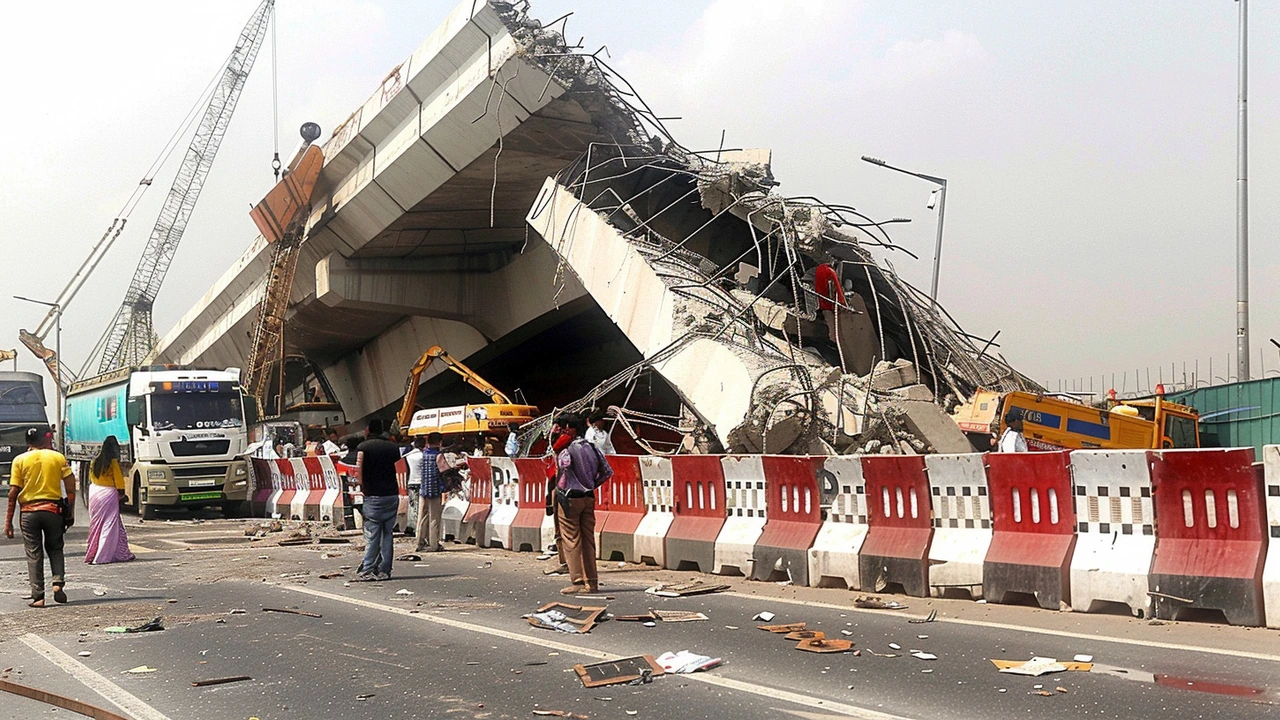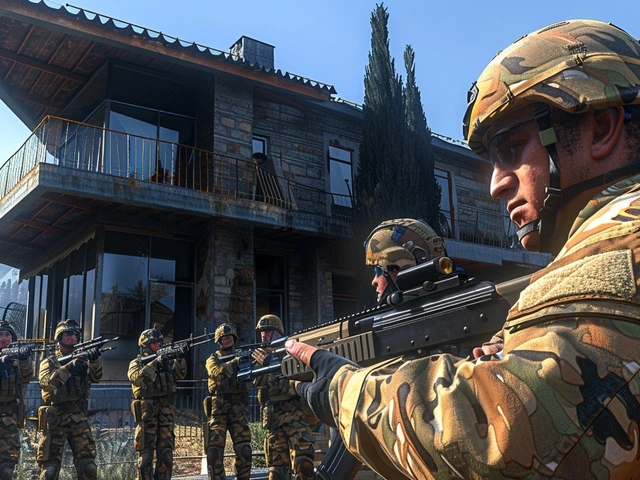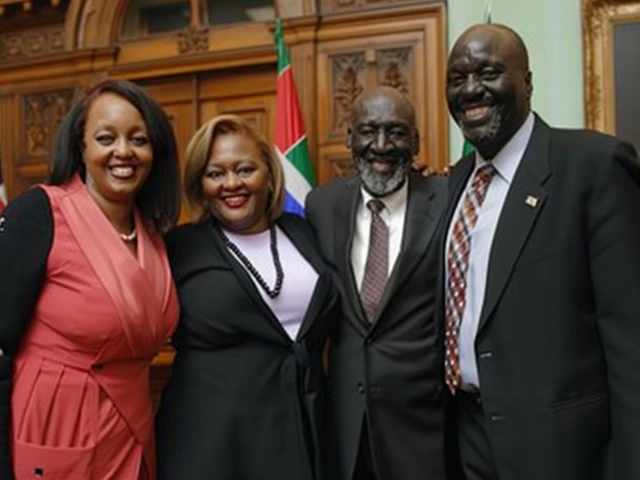Tragedy at Delhi Airport: Cab Driver's Death Sparks Family's Quest for Justice
Amidst torrential rainfall on June 28, an unspeakable tragedy unfolded at the bustling Indira Gandhi International Airport in Delhi. Ramesh Kumar, a 45-year-old cab driver, became the unfortunate victim of a roof collapse at Terminal 1. He had been waiting for passengers when a portion of the structure gave way, leading to his untimely demise. The incident left six others injured and has since sparked serious concerns about the safety standards at one of India's busiest airports.
Ramesh Kumar's family is reeling from the loss. His son, Ravinder, aged 25, disclosed that the family will decide on pursuing legal action after completing the cremation rites for Ramesh. The devastation is compounded by the paltry compensation offered by the Civil Aviation Ministry – a sum of Rs 20 lakh. Ravinder points out that the amount is insufficient, considering the financial burden the family now faces. Just recently, the family spent Rs 5 lakh to purchase Ramesh’s vehicle, with a substantial Rs 1 lakh down payment.
Ramesh leaves behind a grieving family including his wife, Asha, and four children: Ravinder, Ashish, Rashi, and Bhawana. The family's sorrow is laced with simmering anger over the apparent negligence that led to Ramesh’s death. They are looking into their legal options and plan to hold those responsible accountable. This causes a bigger question over the airport's infrastructure safety, especially given the airport’s crucial role in the national and international travel network.
The Aftermath: Emergency Measures and Safety Concerns
The immediate consequences of the collapse were felt not just by Ramesh’s family but by thousands of travelers. Flight departures from Terminal 1 were suspended as authorities scrambled to address the chaos. Passengers voiced frustration over delayed plans and grounded flights, while the scene at the airport remained tense with heightened alerts and security checks. Moreover, heavy rain induced severe waterlogging across various parts of the terminal, compounding the misery for everyone at the airport.
This incident has placed a spotlight on the urgent need for rigorous safety checks and robust infrastructure maintenance at the airport. For an international gateway that accommodates millions of travelers annually, this event is a glaring reminder of the potential hazards lurking within aging or poorly maintained structures.
A Heartbreaking Story of Loss and Struggle
The Kumar family's plight underscores a persistent issue in many countries where compensations for accidental deaths often fall short of addressing the affected families' long-term needs. The Rs 20 lakh compensation, while seemingly substantial, doesn’t cover just loss of life but also the disruption to the family’s livelihood. Ramesh was the primary breadwinner, and his death leaves a significant void that Rs 20 lakh can scarcely fill.
Ravinder, who is grappling with the emotional and financial aftermath, expresses his frustration over the offered compensation. The family is currently focused on the cremation and grieving process but is equally determined to ensure that their loss doesn’t get swept under the rug. Ravinder’s recent financial decisions, including the purchase of a new vehicle, add to the looming economic uncertainty the family now faces.
Wider Implications: The Domino Effect on Airport Operations
Safety hazards and collapses at major infrastructure hubs like airports have a domino effect, impacting not just direct victims and their families, but also travelers, airline operations, and the broader public perception of safety in public spaces. The immediate disruption of flights was a significant repercussion, but the longer-term effects on airport operations and safety procedures are yet to fully unfold.
With the suspension of flight departures from Terminal 1, passengers experienced extended delays and cancellations. Some travelers were stranded for hours, waiting for alternative arrangements. The waterlogging only deepened the crisis, raising questions about the airport’s preparedness for emergencies brought on by natural forces like heavy rainfall. Such incidents underscore the necessity for comprehensive risk assessments and proactive safety measures in all public infrastructure settings.
Moving Forward: The Quest for Accountability and Reform
As the Kumar family contemplates their next steps, there is a broader conversation taking shape about accountability and reform within the aviation infrastructure sector. Who bears responsibility when public infrastructure fails, leading to loss of life? How can such incidents be prevented in the future? These are questions being asked not just by Ramesh’s family but by concerned citizens and authorities alike.
Legal actions, if pursued by the Kumar family, will likely stimulate a closer examination of the safety standards and maintenance protocols at Delhi's Indira Gandhi International Airport. The incident serves as a sobering reminder of the human cost tied to every aspect of public infrastructure. Ensuring that such tragedies do not recur requires stringent oversight, rigorous safety measures, and a genuine commitment to valuing human life above all else.
For now, the Kumar family remains in mourning, their loss irrevocable, their future uncertain, and their resolve unshaken. They are determined to seek justice for Ramesh and prevent other families from enduring similar heartbreak. As the dust settles and more information comes to light, one hopes that this tragedy will lead to meaningful changes and safer environments for all.






Write a comment